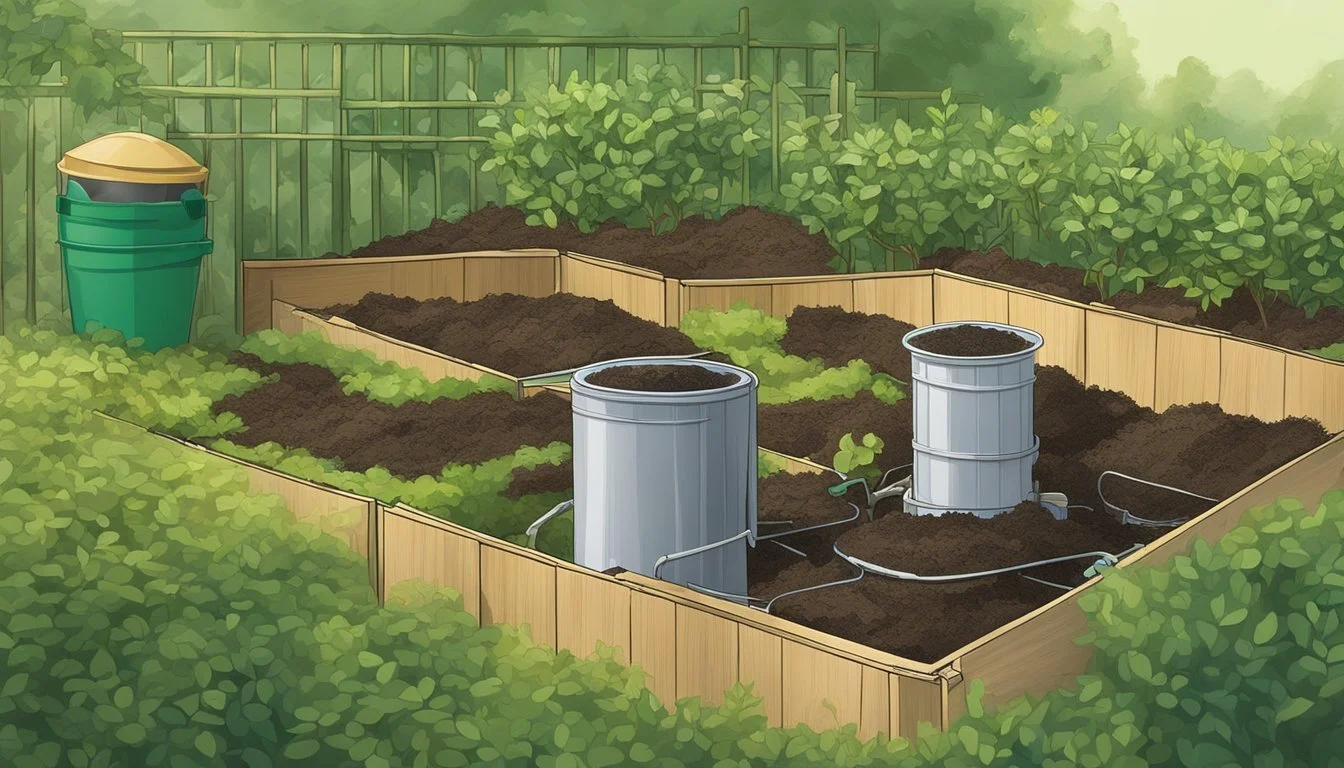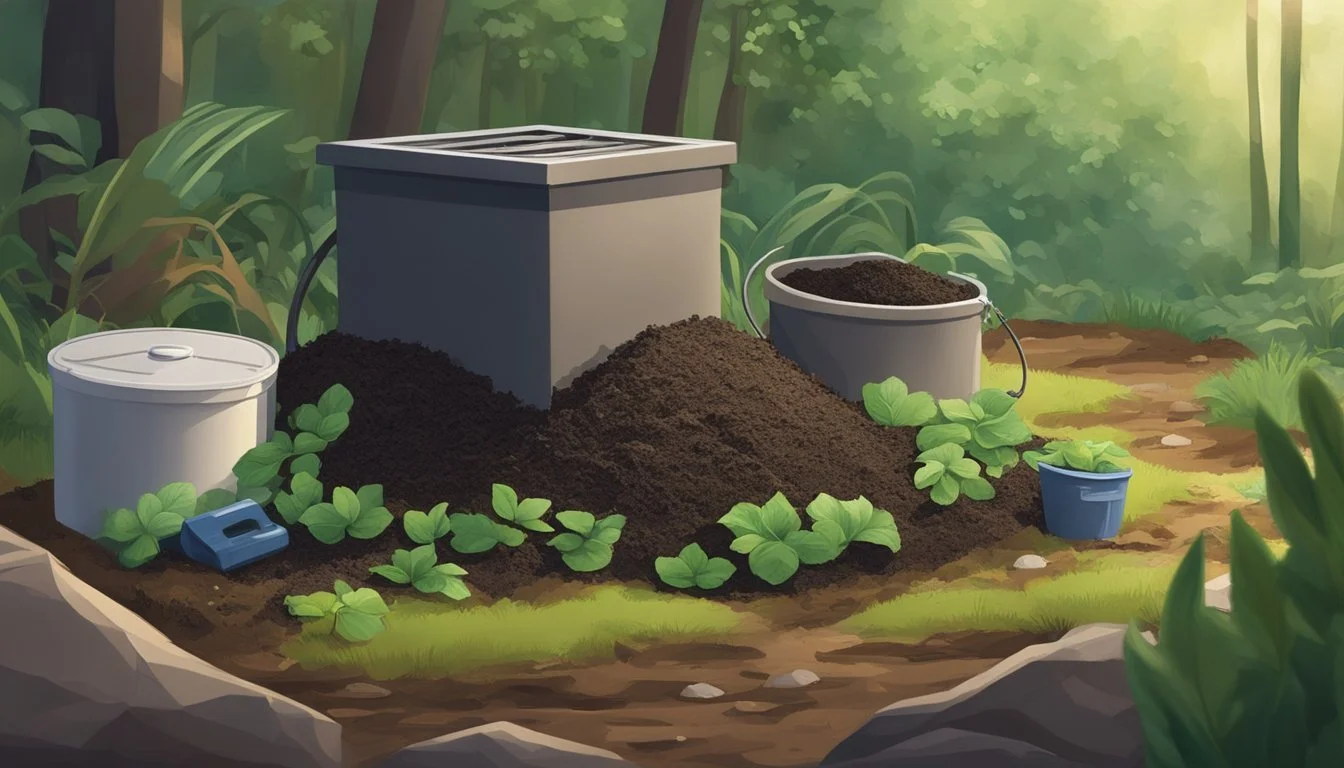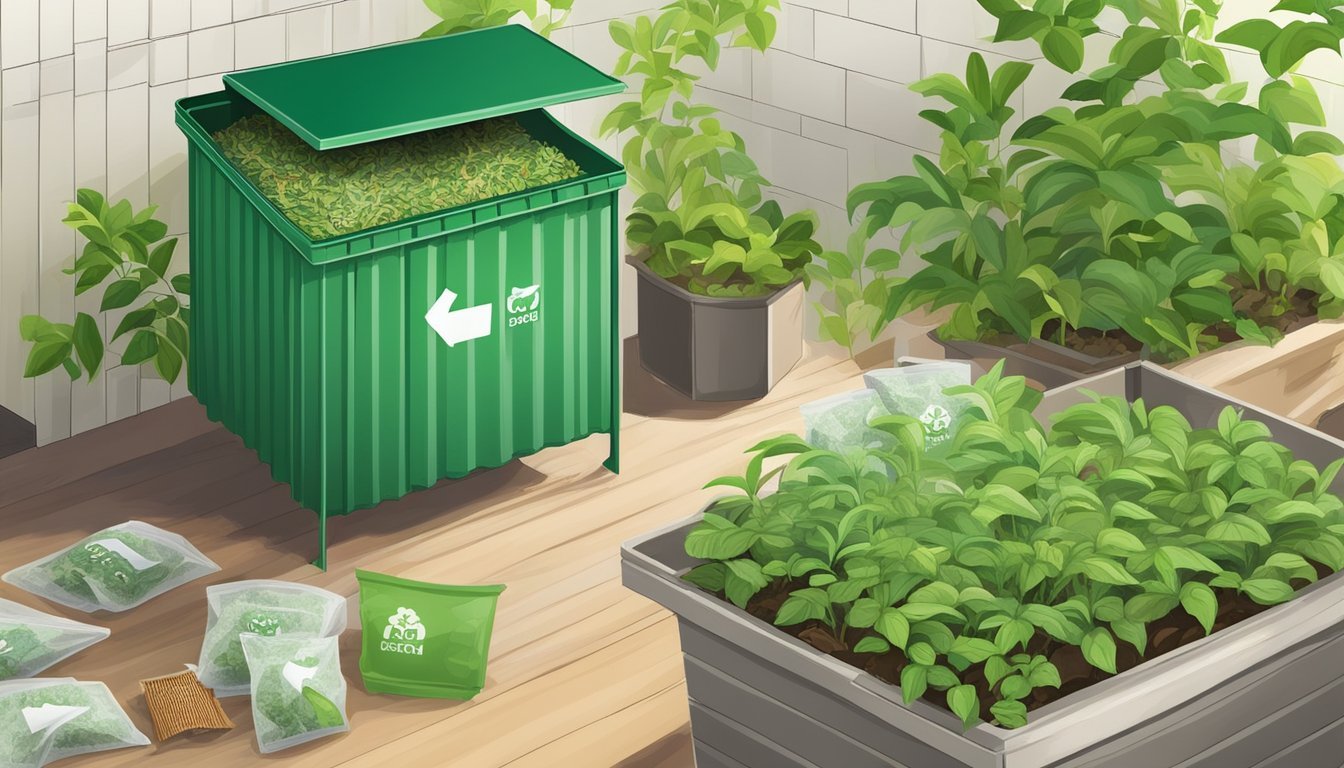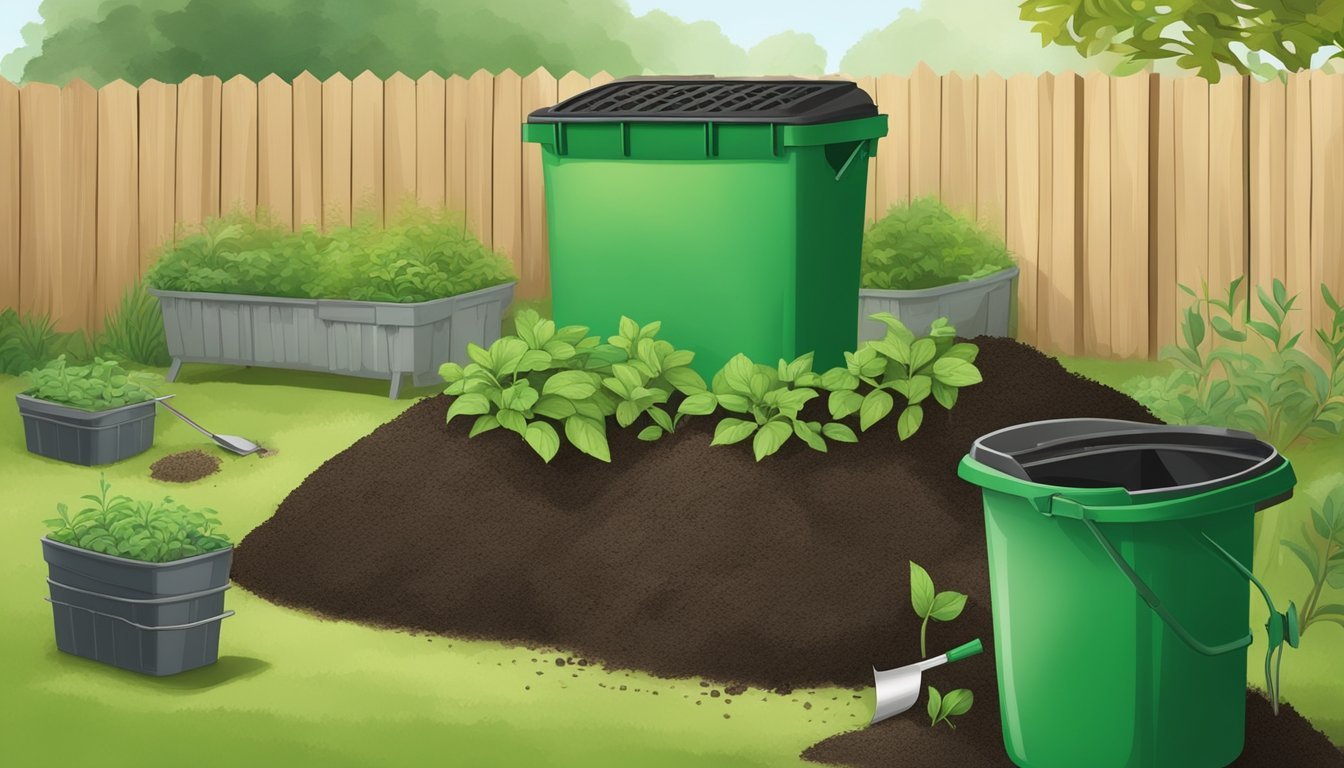Can You Compost Tea Filters?
Understanding Biodegradability in Home Composting
Composting is a widely-used method for recycling organic waste into a nutrient-rich soil amendment. Among the various kitchen scraps suitable for composting, tea bags are a common byproduct. With the growing awareness of eco-friendly practices, many people question whether they can add tea bags to their compost heaps. While tea leaves are beneficial to compost, providing nitrogen to the composting process, the bags themselves require closer examination.
Determining the compostability of tea bags hinges on their material composition. Biodegradable tea bags made from natural fibers such as cotton or hemp can be composted. These bags break down in a composting environment, turning into humus alongside other organic matter. Conversely, some tea bags contain synthetic fibers or plastics, which do not decompose readily and can introduce microplastics into the soil.
Before adding tea bags to compost, it is essential to ensure they are free from non-biodegradable components, such as staples or plastic linings. This step safeguards the quality of the compost and aligns with environmentally responsible practices. Compost tea, an infusion made from compost, is distinct from tea bags but shares the connection of enhancing soil and plant health without chemical fertilizers.
Understanding Composting
Composting is an essential process for converting organic waste into a nutrient-rich soil amendment, benefiting both garden health and the environment.
Basics of Composting
Composting is the natural process of recycling organic matter, such as leaves, vegetable scraps, and garden clippings, into a valuable amendment for soil. It involves creating an environment for microbial activity that breaks down the material into humus—a dark, nutrient-rich substance.
Materials: A balance of 'greens' (nitrogen-rich materials) and 'browns' (carbon-rich materials) is crucial.
Aeration: Regularly turning the compost pile introduces oxygen, essential for microbes.
Moisture: The pile should be as wet as a wrung-out sponge to support the composting process.
Components of a Compost Pile
A successful compost pile consists of a balanced mix of green and brown materials.
Greens: This includes kitchen scraps, grass clippings, and tea leaves which provide nitrogen.
Browns: Items such as dried leaves, branches, and cardboard offer carbon.
Layering: Alternating layers of greens and browns can help maintain the proper balance.
The Role of Microbes in Composting
Microorganisms, including bacteria, fungi, and other microorganisms, are the powerhouse of a compost pile, breaking down organic matter into humus.
Bacteria: The most numerous and active compost microbe, breaking down the majority of organic matter.
Fungi: Helps decompose tough plant materials, like woody stems and paper.
Heat Production: As microorganisms work, they generate heat, which accelerates the composting process.
Each component within the compost bin or pile is crucial to nurturing the soil in a garden by transforming organic waste into beneficial compost. It is the perfect example of a circular ecosystem that reduces waste and enhances garden vitality through microbial activity.
Compost Tea: An Overview
In the realm of organic gardening, compost tea is celebrated for its microbial-rich properties that foster soil and plant health. Here, we breakdown its definition, benefits, and how it compares to synthetic fertilizers.
Defining Compost Tea
Compost tea is a liquid extract of compost that combines water, mature compost, and oxygen to facilitate the growth of microbial populations. During brewing, beneficial microbes, including bacteria and fungi, proliferate and become suspended in the water, creating a nutrient-rich concoction that can be applied directly to plant foliage or soil.
Benefits of Compost Tea
Utilizing compost tea in the garden offers a multitude of benefits. It is an organic solution that improves the nutrient supply to plants, delivering a balanced mix of minerals and nutrients like nitrogen, phosphorus, and potassium. The presence of beneficial bacteria and other microbes bolsters the soil's immune system, reducing the susceptibility of plants to diseases and increasing their stress resilience.
Microbial Growth: Enhances biodiversity in soil.
Nutrient Absorption: Assists plants in taking up nutrients more efficiently.
Disease Suppression: Offers protection against certain plant pathologies.
Compost Tea vs Synthetic Fertilizers
Compost tea and synthetic fertilizers differ significantly. Synthetic fertilizers provide plants with a quick but often imbalanced supply of minerals, mostly in inorganic form. In contrast, compost tea enriches the soil with a spectrum of organic nutrients and living organisms that sustain long-term soil fertility and structure. This creates a nurturing environment in which plants can thrive, without the harsh chemical exposure associated with synthetic alternatives.
Sustainability: Compost tea supports a sustainable gardening ecosystem.
Soil Structure: It promotes the maintenance of soil structure and aeration.
Environmental Impact: The use of compost tea minimizes the environmental footprint when compared to synthetic fertilizers.
Tea Filters and Composting
In the context of composting, it’s essential to discern which types of tea filters are suitable for the process and the best practices for their disposal.
Are Tea Filters Compostable?
Tea filters vary greatly in their composition. Many tea filters are made of paper and are indeed compostable. These filters decompose well and contribute to the overall health of the compost. However, some tea filters may contain plastics or adhesives that are not biodegradable and can introduce contaminants into the compost.
It's also worth noting that some paper tea filters may be bleached with chlorine, and while they can be composted, there is a preference for unbleached, chlorine-free options for the most eco-friendly composting. To verify compostability, one must ensure that the filters are marked as biodegradable or compostable by the manufacturer.
Proper Disposal of Tea Filters
When disposing of tea filters, it is optimal to:
Remove the tea leaves from the bag if possible.
Check the packaging or contact the manufacturer to confirm if the filter is compostable.
For tea filters that are compostable:
Simply place the filters into the compost bin.
For tea filters that contain synthetic materials:
Separate them from the tea leaves, and dispose of the filters in the trash to prevent contamination of the compost.
Brewing and Using Compost Tea
Compost tea, specifically aerated compost tea, is an effective way to deliver beneficial microorganisms to plants, enhancing soil and plant health. It utilizes a brewing process that encourages microbial growth and can be applied via soil drench or foliar sprays.
How to Make Aerated Compost Tea
Ingredients Needed:
High-quality compost
Chlorine-free water
Optional additives: kelp, molasses, or other microbial foods
Equipment:
Brewing container
Mesh bag
Aquarium pump with air stones
Steps:
Fill the mesh bag with compost and place it in the brewing container.
Add optional additives such as kelp or molasses to provide a food source for microorganisms.
Fill the container with chlorine-free water, ensuring it covers the compost bag.
Set up the aquarium pump with air stones to provide constant aeration to the water.
Allow the tea to brew, typically for 24-36 hours, to enable the proliferation of beneficial microbes.
Application Methods for Compost Tea
Soil Drench:
Purpose: To introduce microorganisms directly into the soil system.
Method: Pour aerated compost tea around the base of the plants to soak into the soil.
Foliar Sprays:
Purpose: To coat plant leaves with beneficial microbes, potentially aiding in disease suppression.
Method: Use a sprayer to lightly mist the aerated compost tea onto the leaves of plants, preferably during the cooler parts of the day to ensure moisture retention.
Using compost tea in the garden enhances the microbial diversity in both the soil and on plant surfaces. Regular application can contribute to improved nutrient uptake, fortify plant defenses and potentially increase the nitrogen and carbon content in the soil. When integrating home-brewed compost tea, maintaining consistent moisture levels and avoiding the application of tea that has become anaerobic, or foul-smelling, is crucial for plant health.
Optimizing Your Compost Tea
Making compost tea involves more than just letting organic matter steep in water. A good brew is rich in beneficial microorganisms and nutrients, effectively enhancing plant health and soil quality. The following subsections provide specific guidance to increase the efficacy of compost tea and address common issues.
Increasing Efficacy of Compost Tea
Ingredients:
Mature compost: A diverse, finished compost acts as the tea's foundational inoculant.
Additives: Ingredients like humic acids, fish hydrolysate, and unsulfured molasses (sugar) feed and encourage microbial growth.
Process:
Use non-chlorinated water; chlorine can harm beneficial microbes. Allow tap water to sit for 24 hours or use rainwater.
Aeration is crucial; use airstones connected to an air pump in a five-gallon bucket to oxygenate the water, promoting aerobic bacterial activity.
Measurement:
Maintain a neutral pH to ensure a conducive environment for microbes.
The nutrient level, particularly nitrogen sources like manure, should be balanced to avoid plant burn.
Troubleshooting Common Issues
Problem: Lack of microbial life. Solution: Ensure aeration is constant and effective; use a nylon stocking to hold compost for better water infiltration.
Problem: Unpleasant odor. Solution: Bad smell indicates anaerobic conditions; increase aeration and ensure the compost is mature before use.
Remember that monitoring the compost tea brewing process and making adjustments as necessary will result in a more effective and beneficial product for your plants.
Environmental Impact and Sustainability
Composting tea filters can offer significant environmental benefits by enriching soil health and reducing reliance on chemical inputs in gardens.
Impact on Soil Health
Compost tea, a liquid derivative of compost, can nourish the soil and improve its structure, supporting soil health and fostering plant growth. By adding organic matter back into the soil, compost tea enhances soil fertility and provides essential nutrients for annuals and vegetables. This not only contributes to more robust and healthier plants but also supports the ecosystem within the soil by introducing beneficial microorganisms.
Benefits of compost tea for soil:
Enhances microbial diversity
Supplies readily available nutrients to plants
Improves soil texture and water retention
The environmental impact of using compost tea filters is twofold. Firstly, composting tea filters returns valuable organic matter to the soil. Secondly, it helps maintain soil health, which can naturally suppress plant disease and pests, reducing the need for synthetic alternatives.
Reducing Chemical Use in Gardening
By adopting the use of compost tea and compostable tea filters, gardeners can reduce the dependency on synthetic fertilizers, which are often derived from non-renewable resources and can be harmful to the environment. Synthetic fertilizers can lead to soil degradation and water contamination, problems that do not arise with the use of compost tea.
Advantages of reducing synthetic fertilizers:
Decreases the risk of waterway pollution
Lessens soil and air pollution
Contributes to lower greenhouse gas emissions
The EPA recognizes composting as a means to recycle organic waste, including tea filters, reducing landfill use, and production of methane, a potent greenhouse gas. Utilizing compost tea enriches the soil without the environmental burden associated with the production and use of chemical fertilizers. Not only does this practice nourish plants, but it also supports a more sustainable gardening ecosystem.
Advanced Composting Techniques
In the realm of organic waste recycling, advanced composting techniques like vermicomposting and the use of manure and other natural fertilizers play a crucial role in enhancing the composting process. These methods contribute significantly to the creation of nutrient-rich organic material that benefits plant production and soil health.
Vermicomposting
Vermicomposting involves the use of specific species of worms, usually red wigglers, to break down organic matter into worm castings, a type of fully finished organic compost. The process not only speeds up the decomposition of kitchen scraps and yard waste but also enriches the compost with beneficial microbes. Vermicompost is highly regarded for its ability to improve soil structure and increase microbial activity, making it an excellent soil drench or a top dressing for plants.
Vermicomposting process highlights:
Speed: Faster composting cycle due to worm activity
Nutrient Profile: Increased levels of nitrogen, phosphorus, and potassium
Microbial Activity: Enhanced with beneficial bacteria and fungi
Steps for Vermicomposting:
Prepare a worm bin with appropriate bedding material (shredded newspaper, cardboard, etc.)
Add red wigglers and organic waste (avoid meat, dairy, and oily foods)
Maintain moisture and regularly add new organic matter
Harvest worm castings once the material is fully broken down
Using Manure and Other Natural Fertilizers
Manure, when properly aged or composted, serves as a powerful organic amendment that introduces a wide variety of macro and micronutrients necessary for plant growth. It also incorporates beneficial microbes into the compost, which help in further decomposition of organic matter. A critical aspect of using manure is ensuring it is fully composted to eliminate any potential pathogens that may harm plant production.
Manure in composting offers:
Nutrient-rich composition: Supplies primary nutrients and trace elements
Soil conditioner: Improves soil structure and water retention
Microbial booster: Increases the diversity and quantity of soil microbes
Best practices for using manure:
Make sure to source manure from animals that have not been given antibiotics or hormones.
Compost the manure for several months to ensure that it is fully finished and pathogens are killed.
Utilize aged manure as a top dressing or work it into the soil prior to planting to enhance growth.
By implementing these advanced composting strategies, gardeners can optimize the health and productivity of their gardens through a more effective recycling of organic materials.
Home Gardening Practices
In the realm of home gardening, the integration of compost tea can be a game-changer for plant health and soil quality. Understanding how to apply compost tea and selecting the right plants for your specific soil type are essential practices for any gardener looking to optimize their garden's growth potential and sustainability.
Incorporating Compost Tea into Gardening
Compost tea is a liquid produced by steeping compost in water, which extracts beneficial microorganisms and nutrients. In home gardening, it can be applied to plants in two primary ways: as a soil drench or through foliar application. When used as a soil drench, compost tea permeates the soil, introducing microorganisms that enhance soil structure and fertility. This can help protect against erosion by improving soil cohesion. A foliar application, where the tea is sprayed directly onto plant leaves, provides nutrients and beneficial organisms that can help protect against diseases.
Soil Drench:
Improves soil structure and fertility
Enhances microbial activity
Reduces erosion potential
Foliar Application:
Delivers nutrients to plants
Can prevent leaf diseases
May increase photosynthetic efficiency
Choosing the Right Plants for Your Soil
The success of a garden heavily relies on pairing the right plants with the proper soil conditions. Gardens with rich, well-amended soil are suitable for a wide range of plants, including demanding vegetables and annuals that require nutrient-dense environments. Before adding compost tea, a gardener should assess their soil type—clay, loamy, sandy—and adjust the composition with organic matter as needed for their chosen plants.
For Rich, Loamy Soils:
Annuals: Thrive with added nutrients from compost tea
Vegetables: Benefit from both soil drench and foliar feeding
For Sandy or Clay Soils:
Amendments: Incorporate organic matter to improve soil structure
Compost Tea: Ensures the delivery of nutrients and microorganisms
In conclusion, by employing compost tea appropriately in a home garden and aligning plant choices with soil conditions, gardeners can foster robust plant growth and a resilient garden ecosystem.
Closing Thoughts
Compost is a cornerstone of organic gardening, transforming waste into a nutrient-rich amendment that enhances soil vitality. Tea filters, when made from natural materials, contribute to this cycle, breaking down to support microbial growth. The use of such compostable materials not only bolsters beneficial bacteria in compost but also aligns with eco-friendly practices, reducing environmental impact.
Home gardeners considering composting tea filters should verify that filters are unbleached and free of synthetic fibers. Given these conditions, the presence of tea filters in compost:
Introduces additional organic matter, aiding soil structure
Supports a diverse microbial ecosystem, crucial for plant health
Additionally, the inclusion of tea filters in compost bins reinforces sustainable waste management, echoing home gardeners' roles as stewards of the environment. They can take pride in closing the loop, turning their teatime by-product into a gift for their gardens.
In essence, the integration of tea filters into compost is a small yet meaningful step toward greener gardening practices, which can collectively lead to a significant positive environmental change.









